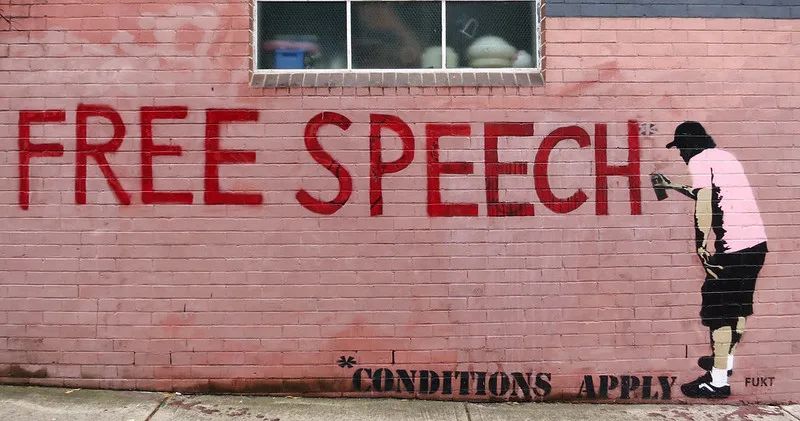
The myth of “Freedom of speech” is a fundamental right in many democratic societies, but it does not mean that individuals can say anything they want without facing potential consequences.
Here are some key reasons why this right has limitations:
Legal Restrictions:
- Hate Speech: Many jurisdictions have laws against speech that incites violence, discrimination, or hatred against individuals or groups based on race, religion, ethnicity, gender, or sexual orientation.
Whether joining a riot in person or documenting it online via not-so-social media, there are many ways to begin a career in journalism today. Take Cameron Bell, a 23-year-old from Tamworth, as an example. Bell claims she live-streamed a riot because she wanted to be a news reporter and was simply “recording the events unfolding.” However, it is also alleged that Bell made racist remarks about asylum seekers during the broadcast. It’s not the most promising start to a career in journalism. She cried in the dock while Cannock district judge Ian Barnes remanded her in custody until a hearing at Stafford Crown Court on August 26.
Her partner, Barber, also from Worthing Grove, pleaded not guilty to participating in the violent disorder in Tamworth. Despite his emotional protests of “I didn’t do anything” as he was led away, the judge remained unmoved and remanded him in custody until the hearing on August 26 at Stafford Crown Court. A clear reminder of the concept of “Participation by Presence”—sometimes, being there is enough to land you in hot water.
- Defamation: Laws protect individuals from false statements that can harm their reputation. Libel (written defamation) and slander (spoken defamation) are punishable offences.
Just ask Tommy ?
- National Security: Speech threatening national security, such as revealing classified information or inciting terrorism, can be restricted.
Maybe Just ask Tommy again in the future?
Public Order and Safety:
- Incitement to Violence: Speech that incites immediate violence or lawless action is not protected. For example, directly encouraging a crowd to riot can be subject to legal action.
Even like those posting online, examples are daily at the moment.
- False Alarms: Creating panic through false information, like shouting “fire” in a crowded theatre without cause, can lead to legal repercussions because it endangers public safety.
Habeeb Khan, 49, of Sparkbrook, Birmingham, pleaded not guilty to a charge of possessing an imitation AK-47 between 4 and 6 August with intent to cause “members of the EDL” (English Defence League) to believe unlawful violence would be used against them. Threatening serious harm and death with an imitation AK-47 assault rifle in a social media video viewed has denied the charges against him.
Social Repercussions: Even if speech is legally protected, it can still lead to social ostracism, boycotts, or backlash from the public or their employment!
Freedom of speech does not protect individuals from the social consequences of their words.
While freedom of speech is a vital right, it is not absolute.
It is balanced against other important values such as safety, security, and respect for the rights and dignity of others. Legal frameworks, societal norms, and platform policies all play a role in defining and limiting the scope of this freedom.
Will-I-am Not-Wordsworth

